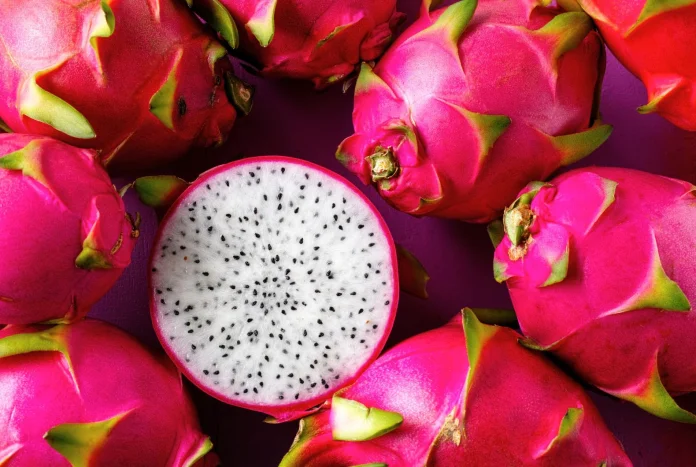Written by Malena Sanchez Moccero
Medically reviewed by Susana Pontiggia (Psychologist, Specialist in Neuroscience and Human Behavioral Sciences, Consultant in Personal and Organizational Development)
In an overstimulated world where stress feels constant, what are the most effective herbs for easing anxiety—without side effects? Can simple habits like breathing or better sleep really make a difference? Here’s how to calm your mind naturally, with science-backed tools and time-tested practices.
Welcome to the Jungle: Living with Anxiety in the Modern World
Anxiety has become a near-universal experience in today’s fast-paced, hyperconnected society. Between global uncertainty, work pressure, and personal responsibilities, it’s no wonder that more people are seeking relief from chronic stress. While therapy and medication are essential for many, others are turning to complementary, natural methods to support emotional well-being—and science is starting to back them up.
Fortunately, nature offers a powerful toolkit. From calming herbs like chamomile and valerian to holistic practices like breathwork and mindful movement, natural stress relief is not only possible, but often surprisingly effective.
Foundations First: Healthy Habits that Support Mental Health
Before diving into herbal remedies, it’s important to recognize that herbs work best when paired with supportive lifestyle habits. These practices won’t replace medical care when needed, but they help build a foundation for a balanced nervous system and calmer mind.
1. Breathe Better
Practicing slow, intentional breathing activates the parasympathetic nervous system—the part of the brain that tells your body it’s safe. Try box breathing (inhale for 4 counts, hold for 4, exhale for 4, hold for 4), or explore guided breathwork on apps like Insight Timer or Calm.
2. Move Your Body
Regular exercise has been shown to reduce anxiety by regulating cortisol (the stress hormone) and increasing endorphins. A brisk walk, a dance session in your kitchen, or a yoga class all count.
3. Prioritize Sleep
Poor sleep and anxiety often feed into each other. Creating a nighttime routine, reducing screen time before bed, and exploring sleep-supportive herbs like valerian or chamomile can all help.
4. Practice Mindfulness
Whether through meditation, journaling, or simply observing your surroundings with curiosity, mindfulness trains the brain to stay in the present moment—reducing rumination and worry.
5. Stay Connected
Social support is a crucial buffer against anxiety. Make time to connect with friends, family, or a support group—even a quick phone call can lift your mood.
Herbal Allies: Nature’s Remedies for a Calm Mind
For centuries, people around the world have turned to plants to soothe the nervous system. Today, research is catching up with tradition. Below are some of the most well-known and well-researched herbs that can help relieve symptoms of stress and anxiety.
Always consult with your healthcare provider before starting any herbal remedy—especially if you are pregnant, breastfeeding, or taking other medications. Each body may respond differently to their use.
1. Ashwagandha (Withania somnifera)

An adaptogenic herb used in Ayurvedic medicine, ashwagandha helps balance cortisol and may reduce stress-related insomnia and anxiety. In clinical trials, doses of this herb significantly lowered anxiety levels and improved sleep quality in adults. Available in capsules, powders, or tinctures, it’s best taken over several weeks for full benefits.
2. Valerian Root (Valeriana officinalis)

Valerian has been used since ancient Greek times to promote relaxation and sleep. Modern science suggests it works by increasing levels of GABA, a calming neurotransmitter. While its sedative effects make it ideal before bed, it may cause drowsiness in some people during the day. Look for it in teas, capsules, or tinctures.
3. Chamomile (Matricaria chamomilla)

One of the most accessible and gentle herbs, chamomile contains antioxidants that bind to the same brain receptors as drugs like Valium. Whether in tea, tincture, or tablet form, chamomile has been shown to modestly reduce symptoms of generalized anxiety disorder (GAD). Those allergic to ragweed should proceed with caution.
4. Lavender (Lavandula angustifolia)

Lavender is famous for its soothing scent—but it’s more than just a calming aroma. Clinical studies show that lavender oil, taken as a supplement (like Silexan), can reduce symptoms of generalized anxiety disorder as effectively as prescription medications—without sedation. You can also diffuse essential oil or add it to a warm bath.
5. Rhodiola Rosea

Known as “golden root,” Rhodiola is another adaptogen that helps the body respond to stress. It appears to reduce fatigue and improve mood, especially in those experiencing burnout. It’s stimulating rather than sedative, making it a good option for daytime use.
6. Passionflower (Passiflora incarnata)

Traditionally used by Native American tribes, passionflower is believed to increase GABA activity in the brain, reducing overactive neural firing. Research supports its use for restlessness and mild anxiety. It’s typically consumed as tea or tincture and is especially helpful for those with racing thoughts or trouble falling asleep.
7. Lemon Balm (Melissa officinalis)

A member of the mint family, lemon balm has been shown to reduce anxiety, promote sleep, and enhance cognitive performance. Often found in teas and tinctures, it has a light, citrusy flavor and pairs well with other calming herbs like chamomile and lavender.
8. Holy Basil (Tulsi)

Used for over 3,000 years in Ayurvedic medicine, holy basil supports emotional resilience and helps regulate the stress response. It may also help with brain fog and immune system imbalances linked to chronic stress. Enjoy it as a daily tea or tincture—but avoid it during pregnancy.
9. Milky Oats (Avena sativa)

A lesser-known but powerful herb, milky oats are harvested in their early, latex-rich stage and are known for deeply nourishing the nervous system. Ideal for those experiencing burnout or chronic stress, milky oats work best when taken consistently over time as a tincture.
10. Kava Kava (Piper methysticum)

Used ceremonially in Pacific Island cultures, kava has a direct sedative effect and is one of the most potent herbal remedies for acute anxiety. However, there are concerns about liver toxicity with long-term or improper use, so medical supervision is recommended.
Safety and Precautions
Just because something is natural doesn’t mean it’s risk-free. Herbal remedies can interact with medications or cause allergic reactions. Always source products from reputable brands and speak with a healthcare provider—especially if you are taking prescription drugs or managing a chronic condition.
Your Calm, Your Way
The pressure of modern life may be unavoidable, but the way we respond to it is within our control. Herbs offer powerful tools for reducing anxiety—but their effectiveness is amplified when paired with conscious lifestyle choices. Prioritize your sleep, stay connected, nourish your body, and create moments of stillness. Healing, after all, is not a one-time fix but a daily practice.
If you feel overwhelmed or symptoms persist, don’t hesitate to seek professional help. Natural remedies are wonderful allies—but sometimes we all need a little extra support.




